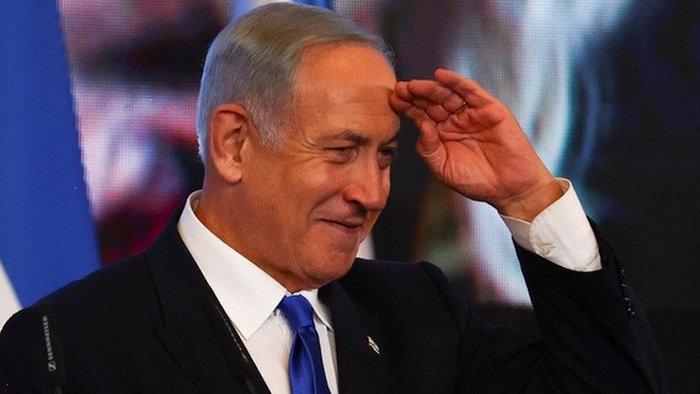Israel election hopes and fears play out in crater town
- Published
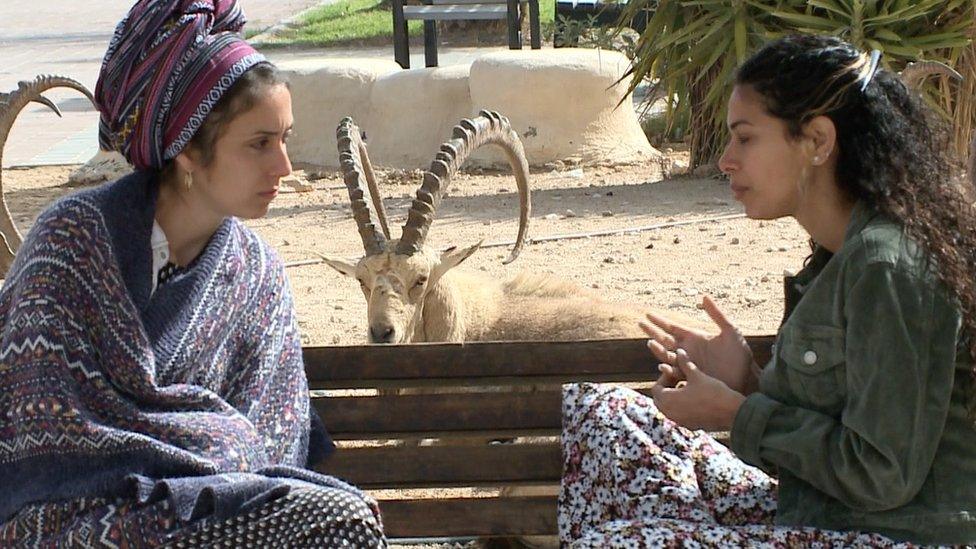
Voters in Mitzpe Ramon are hoping this election will break a succession of deadlocks
The town of Mitzpe Ramon is recovering from its isolation in the desert. Often the inhabitants had only themselves and their crater for company.
The population of 5,211 lives on a cliff edge above a naturally formed chasm in the Negev desert - a site of stunning beauty that entices tourists.
But the visitors vanished amid the Covid closures. The lockdown laid waste to work for the tour guides. In Israel, joblessness has soared.
The country suffered badly as the virus surged last year and there were claims of government blunders.
Then came a dramatically swift vaccine rollout. A battered economy is starting to reopen. Many of these things were weighing on Israel's already crisis-hit coalition, when gridlock triggered yet another election.
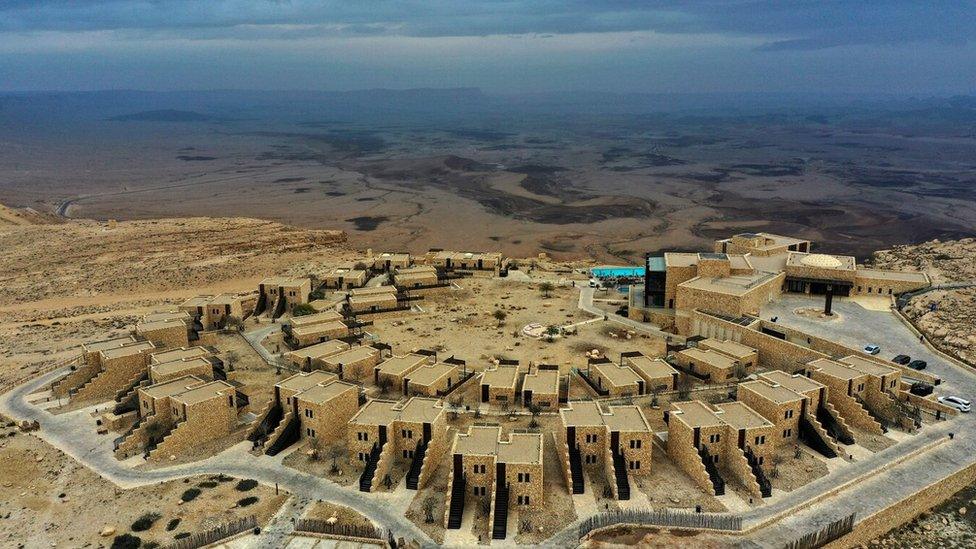
There are not many tourists to be seen these days in Mitzpe Ramon
But in Mitzpe - the town whose name means "lookout" - no-one seems to be watching much.
The streets don't echo with the sound of political rallying. Election posters are as unlikely to be seen as foreign tourists.
'No to Bibi'
Instead there's a desert wind and weariness. The same bitter divisions over Prime Minister Benjamin Netanyahu's leadership - splits formed years ago - look set to play the major role in Tuesday's poll, the fourth since 2019.
"It's no, no, no to Bibi and his friends," says Boaz Katz, who runs Desert Prime tours. He has seen business drop by two-thirds since the start of the pandemic.
He steers his 4x4 over rocks into the crater's core, hinting at worries shared by many Israelis.
"I think about the future a lot and it spooks me to see Benjamin Netanyahu and his natural companions - I want to live in a free, democratic country," says Mr Katz, who used to vote for Mr Netanyahu's Likud party.
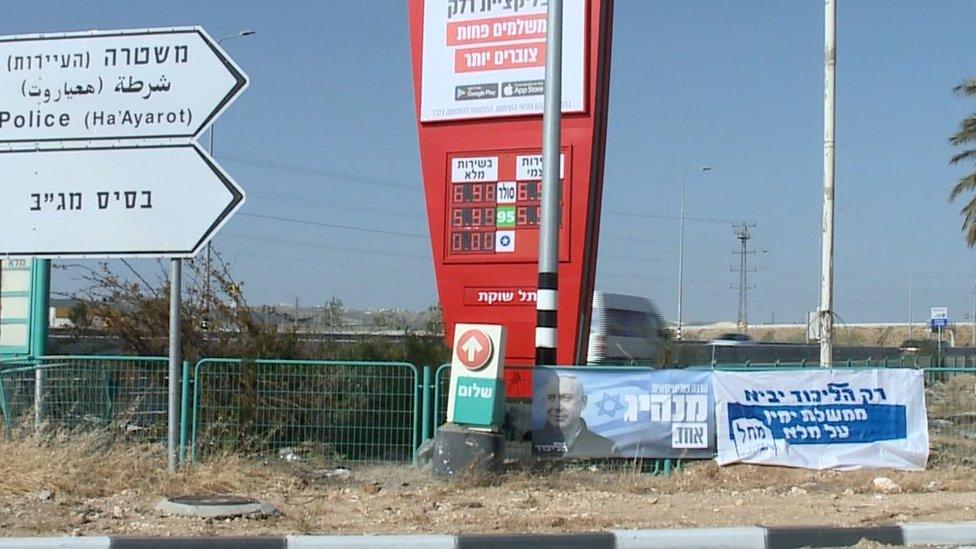
Benjamin Netanyahu is seeking a clear mandate, but polls suggest results could be tight
The prime minister has been met with protests over his desire to rewire parts of the justice system while on trial for corruption. Others oppose his long-standing pact with ultra-religious parties.
The tour guide scratches a heart shape in the sand and explains the landscape.
The crater was not formed by an asteroid smashing into Earth. Instead, it was scoured out over millennia through water erosion, as torrents eviscerated soft rock.
Likewise, those who rival for Israel's leadership feel they are fighting an unstoppable force.
The last election with no winner led to an "emergency coalition" to fight the pandemic. Mr Netanyahu's rival Benny Gantz - a former general and political novice - agreed to a rotating premiership.
But Mr Gantz never got to take his turn. The remnants of his Blue and White party are facing near wipe-out, according to opinion polls.
'Guardian of Israel'
The drive back into town passes the only shopping centre. There's a queue at the shawarma restaurant. Others sit inside a franchise coffee shop, masks on. Business is also back by the crater.
Rachel Amsalem lives on the edge. Her home close to the clifftop is covered in Israeli flags.
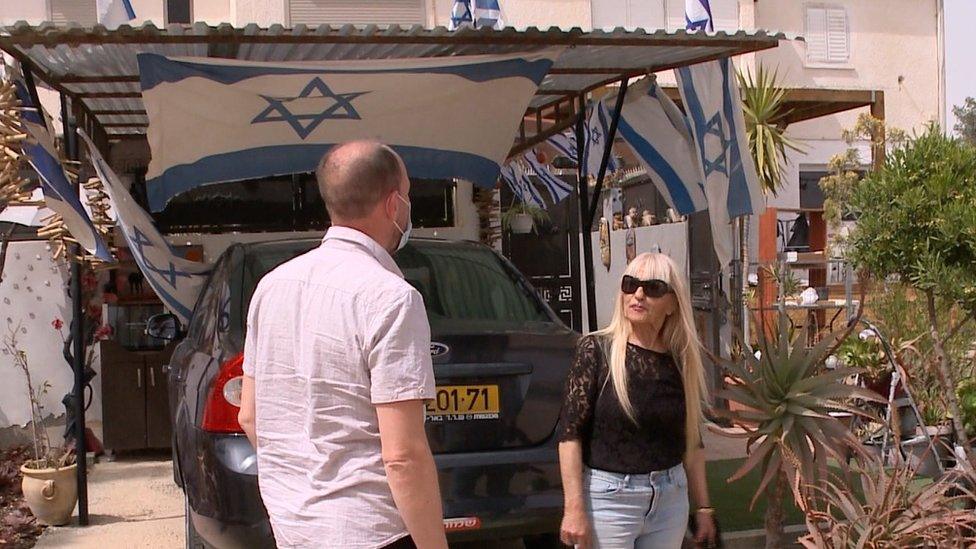
Rachel Amsalem credits Israel's achievements to Mr Netanyahu
A Likud cap rests on a rail in the porch, ready for outings when she faces off against the "black flag" protesters who oppose Mr Netanyahu.
"He doesn't sleep. He is the guardian of Israel," says Mrs Amsalem, borrowing a biblical phrase.
She knew him decades ago, working as a maid in the Netanyahu family home in Jerusalem.
Her parents fled Algeria in the 1940s. Decades later, she came to Mitzpe Ramon, a development town providing low-cost homes for Jewish immigrants, many from Arab countries. The community now forms a base of working-class support for Mr Netanyahu.
Mrs Amsalem credits him with the speedy vaccine deal helping bring the pandemic under control. Last year, her daughter-in-law, also called Rachel, died with Covid-19.
"Nobody else has the courage to pick up the phone and call [vaccine-maker] Pfizer," she says.
"He works day and night, whether it's [the diplomatic deals] with Arab countries, [countering] Iran, on corona, on the economy… there's one person we should say thanks to."
But Mr Netanyahu's opponents have instead been scrambling to find another viable challenger to him.
The "anti-Bibi" bloc now includes a former ally-turned-rival, Gideon Saar, who left Likud. Many more opposition votes are being soaked up by the centrist party led by a former TV host, Yair Lapid.
Deep distrust
The outcome could rest on how smaller parties do. In an unlikely move, Mr Netanyahu has tried to get support from Palestinian citizens of Israel, who make up a fifth of the population.
A drive further north in the Negev - al-Naqab in Arabic - reveals deep scepticism over the motives of a politician who once warned his base to get to the polling stations as "the Arabs are voting in droves".
"We all know he is lying to people," says Huda Abu Obaid, a community organiser in the Bedouin town of Lakiya.
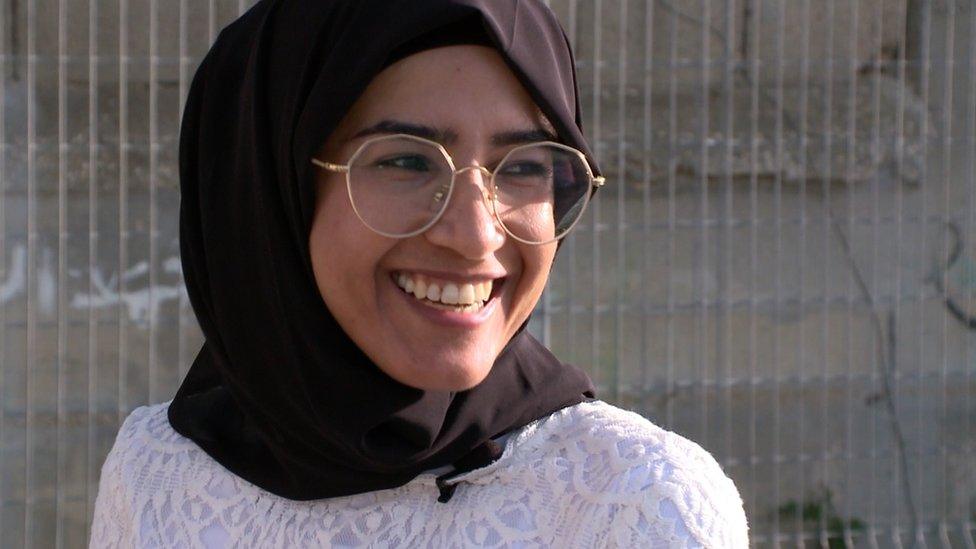
Huda Abu Obaid: Benjamin Netanyahu "has been the worst one for us"
She believes Mr Netanyahu wants to further divide support for a group of Arab parties, which could strengthen his hand in coalition building.
"We know very well that he was the worst one for us, for the Arab community, and I think that he will not change himself," she says.
The sun is setting back by the crater where the Mitzpe Ramon desert circus school - closed for much of the last year - is warming up. A juggler appears at the cliff edge. The principal, Adam De Langa, urges unity, calling a fourth election "crazy".
It might be another cry in the wilderness. The sides remain entrenched in Israel's unwon battle for a stable government.
- Published22 December 2020
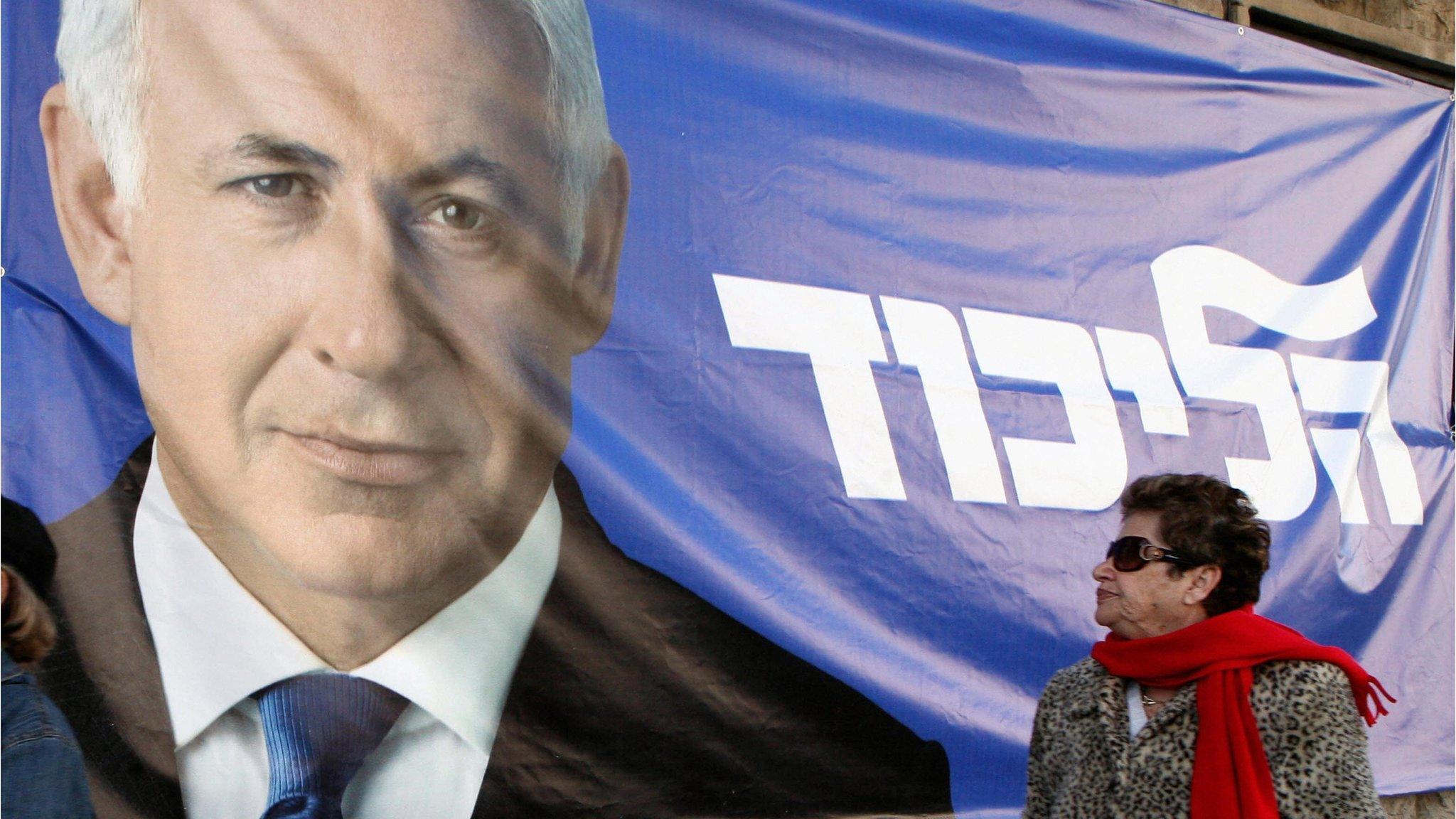
- Published22 May 2020
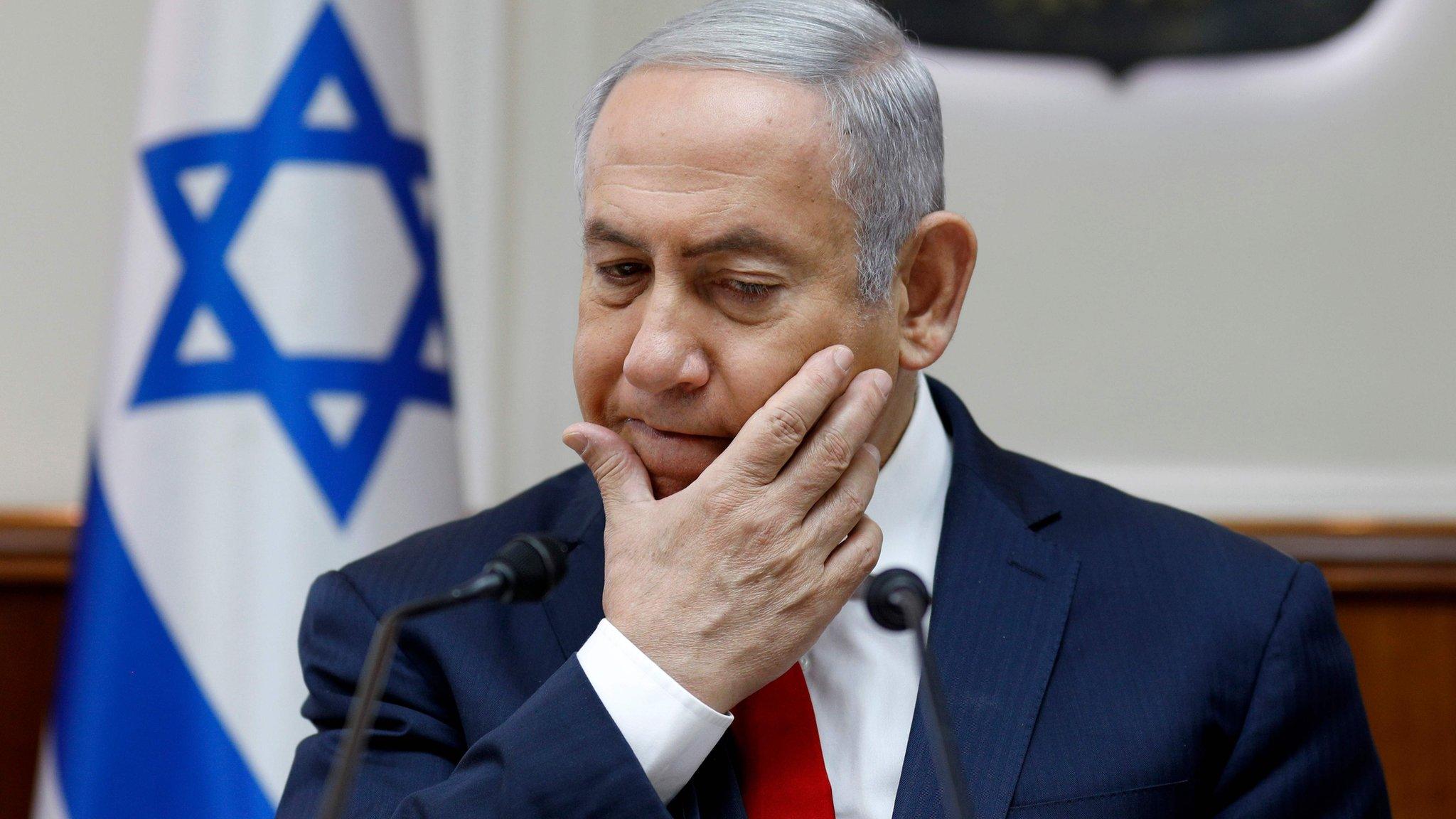
- Published21 November 2024
